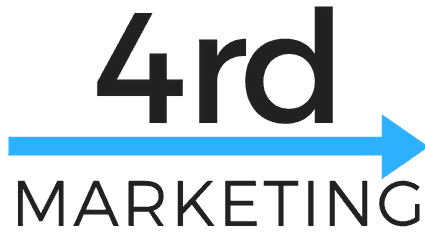After last week’s episode with Zach Goldie, where we covered pay per click marketing, copywriting and landing pages, I thought it would be great to take a step back and go over Pay Per Click marketing and create a Pay Per Click 101 Episode. With our focus now being on lead generation, I thought it’d be good to talk about how to start generating leads with PPC marketing. This episode is in 2 parts and we’ll keep both podcast episodes here on this page in case you want to bookmark it.
What Is Pay Per Click Marketing
Pay per click is exactly like what it sounds like, it’s paying for every click. When the internet was in the early stages analytics were not as advanced as they are now and they tracked “impressions.” An impression was a record of a page loading, whereas a click is a recording of a user actually clicking on your ad and thereby charging your account for that web visitor. Paying for traffic.
PPC Marketing is most commonly referenced in conjunction with Google advertising or Bing, however, Facebook, Pinterest, Instagram, Twitter and more all run this model as well. There are different mechanics and options such as video ads and images, but ultimately you can still run “pay per click” ads on these networks.
For the sake of those mainly interesting in leveraging Google and Bing, we’ll go over how to set up ads in Google, although Facebook has a similar setup.
PPC 101 – Campaigns
 Campaigns threw me off the first time I saw them. I didn’t realize that they were really broad categories. In many cases, small business owners may only have 1 or 2 campaigns depending on the type of ads they are running. You could also run “campaigns” that you might want to segregate, but for the most part, I’ve found that to be more cumbersome than it is helpful. A good example of a Campaign would be “Home Buyer Ads” or “Coffee Tables.” You wouldn’t do something super specific yet. If you’re a WordPress user think of Campaigns as categories.
Campaigns threw me off the first time I saw them. I didn’t realize that they were really broad categories. In many cases, small business owners may only have 1 or 2 campaigns depending on the type of ads they are running. You could also run “campaigns” that you might want to segregate, but for the most part, I’ve found that to be more cumbersome than it is helpful. A good example of a Campaign would be “Home Buyer Ads” or “Coffee Tables.” You wouldn’t do something super specific yet. If you’re a WordPress user think of Campaigns as categories.
PPC 101 – Ad Groups
From our experience, marketers and business owners alike, tend to put the majority of their niches in “Ad Groups.” You could put “oval coffee tables” and “square coffee tables” in here. You’d only use these two as campaigns if you had multiple brands you want to separate. Here again, if you’re a WordPress user, you could think of Ad Groups as Tags or subcategories. If you’re in real estate, you’d use ad groups to separate cities or perhaps neighborhoods. So you could have City as a category and neighborhoods as “ad groups” if you wanted as well.
PPC 101 – Keyword Types
If you need help with Keywords, check out our Keyword Research episode for that. However, there are 3 types of keywords that Google has that are important to pay attention to.
Exact Match Keywords
When I speak with digital marketers this is the most common keyword type used. The reason is that it is very, very easy to control. This will only get exactly what you search. There are some things that Google does to help you here, but it’s going to be the truest. Close variations here may also include a reordering of words if it doesn’t change the meaning. This means prepositions don’t play a big role. Like Homes for sale in Atlanta and city homes for sale can mean the same thing.
Exact Keyword Match Examples
Example keyword: [oval coffee tables] Example search: oval coffee tables, coffee tables that are oval
Example keyword: [Atlanta Homes For Sale] Example search: Atlanta homes for sale, homes for sale in Atlanta
Phrase Match Keywords
Phrase match is a bit broader search in terms of letting Google guess what you might also mean. This will get you more ad impressions and ideally without losing the original intent. In some ways, it’s more rigid than Exact keywords. Whereas Exact keywords ensure that you only get the words you want, it allows for reordering and filler word removal, Phrase match keywords do not do that.
Ads won’t show, however, if a word is added to the middle of the phrase, or if words in the phrase are reordered in any way.
Phrase Keyword Match Examples
Example keyword: “oval coffee tables”
Example search: oval coffee tables, blue oval coffee tables, leather oval coffee tables, oval coffee tables for sale
but not “coffee tables that are oval”
Example keyword: “Atlanta Homes For Sale”
Example search: Atlanta homes for sale, midtown Atlanta homes for sale, atlanta homes for sale under 300K
but not “homes for sale in Atlanta”
Broad Match Keywords
This is the blanket catch-all and it’s likely the first place that most small business owners start. It’s not uncommon for an accountant to run a generic adwords campaign with “Tax Preparation” as a broad match. Broad match keywords are an effective way to find other keywords that might work for your niche but they aren’t going to be as targeted as the other two. Words that Google deems as synonomous are going to be used as well as over-arching categorical words.
Broad Keyword Match Examples
Example keyword: oval coffee tables
Example search: leather coffee tables, blue ottomans, coffee tables for sale, cheap coffee tables
Example keyword: Atlanta Homes For Sale
Example search: Atlanta homes for sale, Atlanta houses for sale, Atlanta condos for sale
if you fail to use a location, you’ll get the entire country and if you fail to put “for sale” you’ll get “for rent” and airbnb like options.
Negative Keywords

This is where the money is really made. Inevitably as you’re running a campaign you’ll discover that Google has displayed your ad to the wrong searcher. This is why you want to check your keyword search often. Simply go to your Keywords tab and look for “Search Terms” and you’ll see what everyone types in to find your ad.
Negative Keyword Match Examples
Example keyword: -square
Example search: Any search that meets the above criteria, but can’t have the word “square” in it. So even “square oval coffee tables” won’t show.
Example keyword: -rent
Example search: Any search that meets the above criteria, but can’t have the word “rent” in it. So even “atlanta homes for sale or rent” won’t show.
PPC 101 – Audience
The power of these type of ads is that you can narrow it down to your target demographic. While Facebook offers a ton of options to target potential customers, Google only has a few but it’s still good enough to get lazer focused. Google also tends to have buyer’s with a higher “buyer intent” than social media platforms like Facebook.
In other words, a customer searching on Google is looking for a solution to a problem whereas a Facebook user is being entertained and you interrupt that process with an ad. Both can be effective. Before jump into the list of what’s available, keep in mind that some of these are unknown. Which essentially means you could inadvertently eliminate would be customers. Here’s a list of what you can target on Google Adwords.
Google Adwords Demographic Targeting Options
- Location – You can target by city, zip, or do a radius around a specific location.
- Age – You can target age ranges
- Gender
- Approximate Household Income – this is a new one and exciting. It shows that Google is expanding. The options include: “Top 10%,” “11-20%,” “21-30%,” “31-40%,” “41-50%,” “Lower 50%,” and “Unknown”
- Parental Status
PPC 101 Ad Groups
This is the tab that houses your different “topical” ads. So in our examples previously it could be a group for “oval coffee tables” and “square coffee tables” or “city homes for sale” and “city 2 homes for sale. ”
PPC 101 – Other Setting
There are a few other settings that are worth noting here. They really don’t deserve a whole section devoted to them, but they are worth noting.
Campaign Type
Campaign type is confusing since it’s the same name as “campaign.” What it means essentially is whether to show the ads to Google searchers or google “display” partners. One is targeting searchers while the other is on websites that tend to be more for entertainment. While this is not a hard and fast rule, generally speaking, small business owners should keep their ads set to Search Network and only use Display network for remarketing or branding. There’s a few really awesome options for more advanced users but that’s outside the scope of this post.
Device Targeting
Pretty simple here, do you want to target mobile devices, desktops or tablets. The best way to decide is to look at your landing page or the link you are sending the traffic to. If it’s not mobile ready then exclude it. Ask yourself if the webpage is a good experience on each device.
Bidding
There is an art to bidding. In general, you should use a tool like SEMRUSH or Spyfu to help guide your bids and get you in the ballpark. After a month or so of ad spend (the money you spend on ads), you’ll get a better idea and can adjust your bids. In most cases, you’ll start a little high but need to move down so you can get a better ROI.
Tracking And Conversion
None of this is really worth doing if you can’t track it. Sure you’ll get traffic and maybe even sales, but you won’t REALLY know how to good you are doing until you set up your conversion. There are multiple ways to do this and Google Analytics and Adwords, unfortunately, handle this differently. The good news is that you can connect the two.
Conversion Tag vs Conversion Page
How To Set Up Tracking
Both require the item to be loaded for it to work. If you’re an e-commerce site you might use opt for the tag and conversion page so you can visualize your funnel better, not only that but it gives you more future options.
However, for many business owners, the idea of doing all this is a bit mind-numbing. One simple way to track conversions is simply to track how many “Thank You” or “Success” pages are loaded.
Whether you are advanced or not, the process is pretty much the same to get it connected. You simply copy and paste your analytics tracking to your site which can be done with most WordPress themes in the options settings.
Remarketing
The anatomy of a Killer Ad
To be continued.
Referenced:

